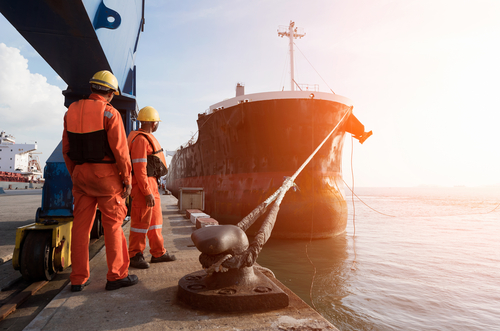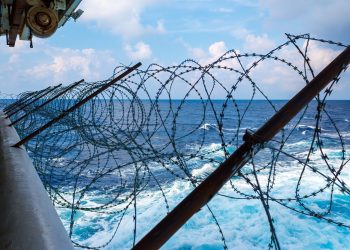The European Transport Workers’ Federation (ETF) urges all governments to ensure seafarers receive the same social security protection as workers on shore.
According to ETF, since ancient times, shipping has been specially regulated. As a result, seafarers have been viewed as a “special case”, and this label has long been used to justify their exclusion from modern legislation protecting workers’ rights in land-based sectors.
While this was supposedly done in the name of protecting seafarers, it has, in reality, undermined their rights and protection. Seafarers are not second-class workers and should be covered by the EU legislation minimum standards applicable to all workers.
…ETF explained.
To remind, European seafarers are excluded from the Directive on Transparent and Predictable Working Conditions, a part of the European Pillar of Social Rights. Their inclusion would have a significant positive impact, such as granting them the right to be informed about their social security coverage, as ETF stated.
[smlsubform prepend=”GET THE SAFETY4SEA IN YOUR INBOX!” showname=false emailtxt=”” emailholder=”Enter your email address” showsubmit=true submittxt=”Submit” jsthanks=false thankyou=”Thank you for subscribing to our mailing list”]
Some EU member states fail to provide comprehensive social security protection to seafarers that would be at least equivalent to those offered to shore-based workers. Therefore, ETF says the mobile nature of seafarers’ work makes it possible for them to ‘fall between the cracks’ and more protection is needed.
“On working time for European seafarers, there is also a separate regulation that allows far more working hours to be legally acceptable at sea than on shore. The occurrence of occupational deaths, injuries and illnesses are far higher among seafarers than in land-based professions. Seafarers are currently clearly not adequately protected, with severe consequences to their physical and mental health.
Mental health issues, stress, and fatigue are problems seafarers deal with regularly and have been exacerbated by the pandemic. The suspension of crew change and the prohibition of crews from disembarking at port terminals became and are still major concerns for humanitarian, safety and employment-related reasons”.
…ETF added.
Concluding, the exclusion of seafarers in a current discussion at the EU level on the proposed Directive on minimum wages could further worsen their already precarious situation and undermine the different minimum wage systems currently applied to seafarers in some member states. The proposal aims to improve minimum wage coverage for workers, standard of living and improving living and working conditions.






























































